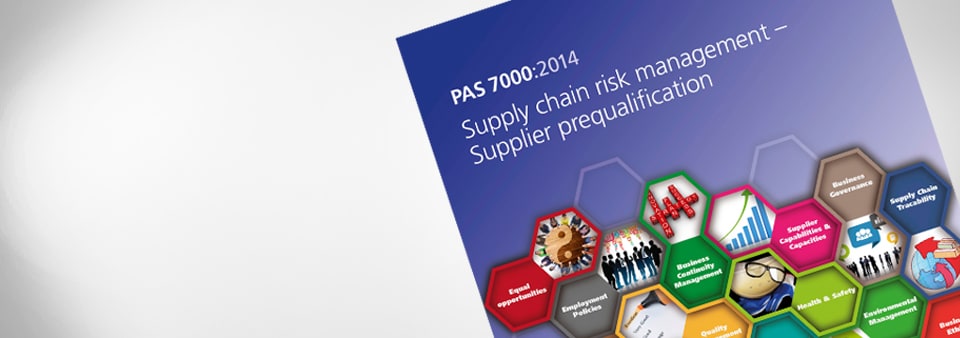PAS 7000:2014 Supply Chain Risk Management
PAS 7000:2014 Supply Chain Risk Management
Supplier prequalification
Supplier prequalification


Introducing PAS 7000 Supply Chain Risk Management - Supplier prequalification
PAS 7000 Supply Chain Risk Management- Supplier prequalification standard is a supply chain pre-qualification framework that supports procurement activity for businesses of all sizes, all sectors and across the globe.
PAS 7000 standard has been developed in response to clients around the world requesting a universal standard that would combine supplier profiles, capabilities and performance in order to make informed decisions about whether or not to engage with a potential supply chain partner.
Our new standard PAS 7000 helps address these issues and specifies a universal package of supplier information to be shared with supply chain partners. This covers, , key supplier information, capabilities and performance which will help buyers trace back & secure their supply chains, mitigate risk and brand reputation and for suppliers to promote their products.
Who needs PAS 7000?
PAS 7000 is intended to establish a supply chain information model that will be of relevance to procurement, compliance, legal and supply chain professionals in organizations of all sizes anywhere in the world.
What are the benefits of PAS 7000?
- It is structured and presented to be equally accessible for both suppliers and buyer
- It is based on international consensus developed by procurement and supply chain professionals drawn from UK, US and APAC
- Includes a wide range of potentially relevant topic modules such as capacity & capabilities, environmental management, employment policies, business continuity, traceability and data protection to name a few
- The modular approach to the information required permits the building of respective modules into a customized matrix supported by a common set of application principles or rules.
- Provides a degree of flexibility for tailoring the information to particular organizational needs whilst at the same time retaining a robust, repeatable approach
- Helps mitigate risks and reputational damage





